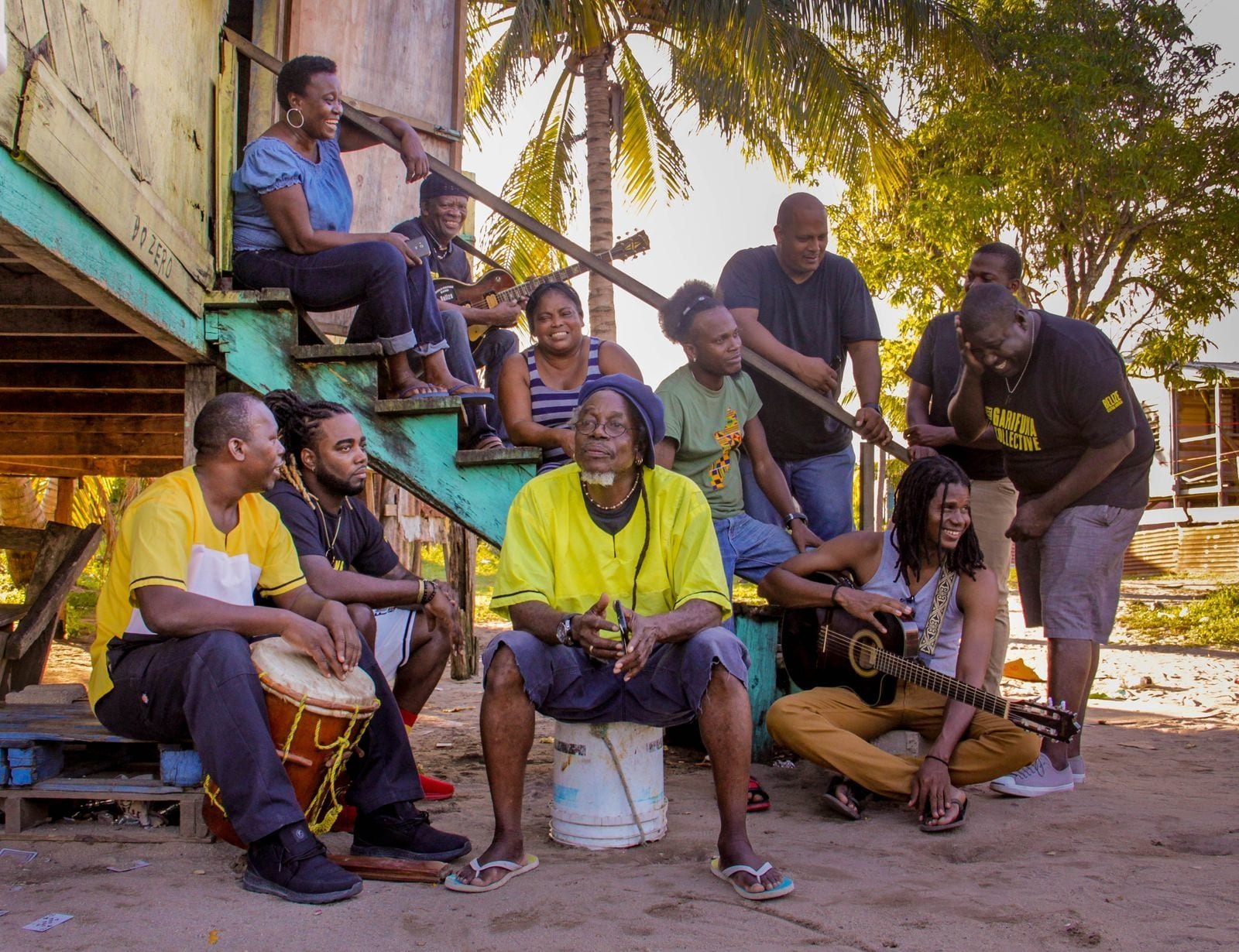
For the rotating crew of the Belize-based Garifuna Collective, the last two decades have been full of change. Since local label Stonetree‘s global release of compilation Paranda introduced a worldwide audience to music of the Garifuna culture, a diasporic community-based in the Caribbean and Central America of African and indigenous descent, Garifuna ensembles and artists have caught the eye of a previously unprecedented market, and few with as much success as the Collective.
Since frontman Andy Palacio’s unexpected death in 2008, though, the Garifuna Collective have only released one studio album: 2013’s Ayó, largely a tribute to Palacio (“ayó” meaning “goodbye” in the Garifuna language the group sings in). It’s after a slightly smaller gap in releases that they return with this year’s Aban (“One”), an album that sees the group releasing some of its most potent music yet.
As is their signature, the Garifuna Collective draw on a number of rhythms and genres common to Garifuna musical traditions on Aban. The group’s music is percussion-heavy – wooden drums, maracas, clave, handclaps, turtle shells, the shaken sisira – and comes by it honestly, through its West African and indigenous roots. They lean away from the Spanish-influenced acoustic paranda sound predominant on previous albums here (and in the work of former Collective regular-cum-solo star Aurelio Martínez). Instead, they take a rootsy approach to the more electronic punta rock with electric guitar and bass. Dub and reggae vibes add even more urban-meets-beachy atmosphere to the mix, and ambient field recordings in the background directly invoke the lively streets and laid-back coastlines of Belize.

The album opens with “Lügua” (“Lost”), wavering guitars mimicking the sea and Marcela Aranda’s earthy lead vocals full of soulful grit. It moves into standout single “Wiya Waist”, a track marked by an even higher energy groove, catchy chorus, and resonant guitar lines – danceable Garifuna funk at its most colorful. The softer reggae beats of “Hamala” (“Let Him Fly”) offer a breezy wistfulness. Emilio Thomas croons with a voice rich and comforting, and Guayo Cedeño’s lead guitar line sings the Caribbean blues.
Three consecutive tracks, “Uraga” (“Story”), “Ideruni” (“Help”), and “Uganu” (“News”) take samples from Umalali: The Garifuna Women’s Project, a groundbreaking 2008 Stonetree collection of Garifuna women’s music from Belize, Honduras, and Guatemala. Samples from all three states of the unofficial Garifuna nation are represented in the recordings used here. “Uganu” has a particularly luscious bassline, and both it and “Uraga” draw heavy rhythmic and melodic inspiration from other Latin American styles, much like the entire paranda genre. Singers join in a monophonic melody spread over higher and lower octaves for “Ideruni”; the higher and more nasal sounds refer back to indigenous Arawakan styles. Upbeat highlight “Magidu” follows, the melody accented by sharp handclaps in the foreground and bolstered by Ivan Duran on bass in the back.
Final track “Chatuye” goes in a markedly new direction for the Garifuna Collective. Synthesized electronic touches add new, neon-colored dimension to the music, driven forward by Rolando “Chichiman” Sosa and Denmark Flores on the primero and segunda drums that are the backbones of many a centuries-old Garifuna rhythm. Gloriously repetitive guitar ostinato atop the rhythm backs a chorus of vocalists proclaiming a single name, over and over. It’s that of Chatuye, the famed Garifuna chief who led the early Garifuna populace of Yurumein (known to most of the world today as the island of St. Vincent, and a sacred space in Garifuna cosmology) in resistance against the British colonial government that would eventually kill him and exile the rest of the Garifuna nation to Central America.
The song fades into samples of Aurelio Martínez and Onan “Sambo” Castillo, drumming by the Honduran coast in 2008, ending Aban on a song that both looks to the group’s sonic future and its past. Indeed, Aban is the Garifuna Collective at their most dynamic, playing with textures and techniques for an album that exults in the potential for newness in musical frameworks long-established, in ancestral rhythms and the cultivation of innovation. Aban is the Garifuna Collective polished and fine-tuned, but above all passionate about communing with each other and their increasingly broad audience through music.

